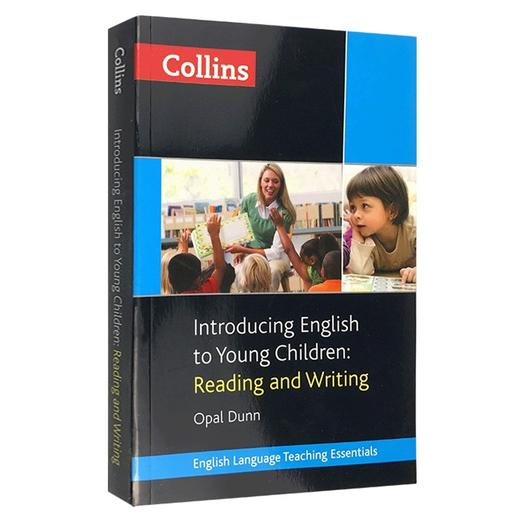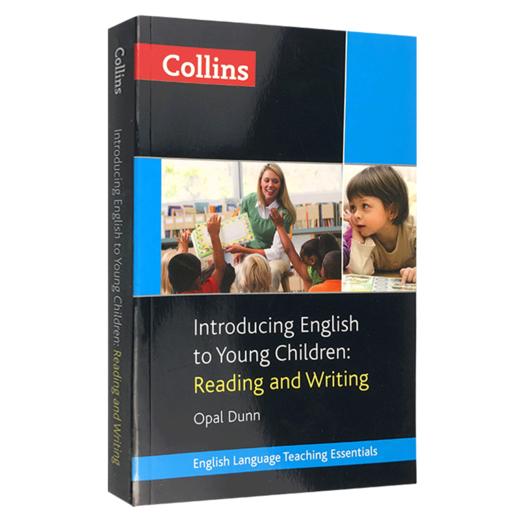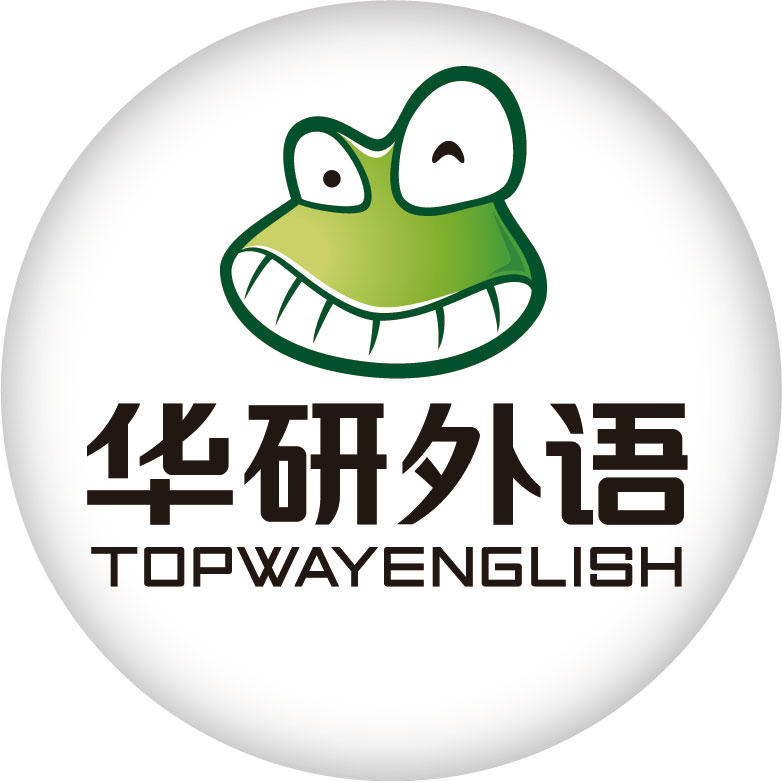Collins柯林斯少儿英语阅读及写作教学指南 英文原版 Introducing English to Young Children Reading and Writing 全英文版进口教辅书
| 运费: | ¥ 0.00-999.00 |
| 库存: | 4 件 |
商品详情
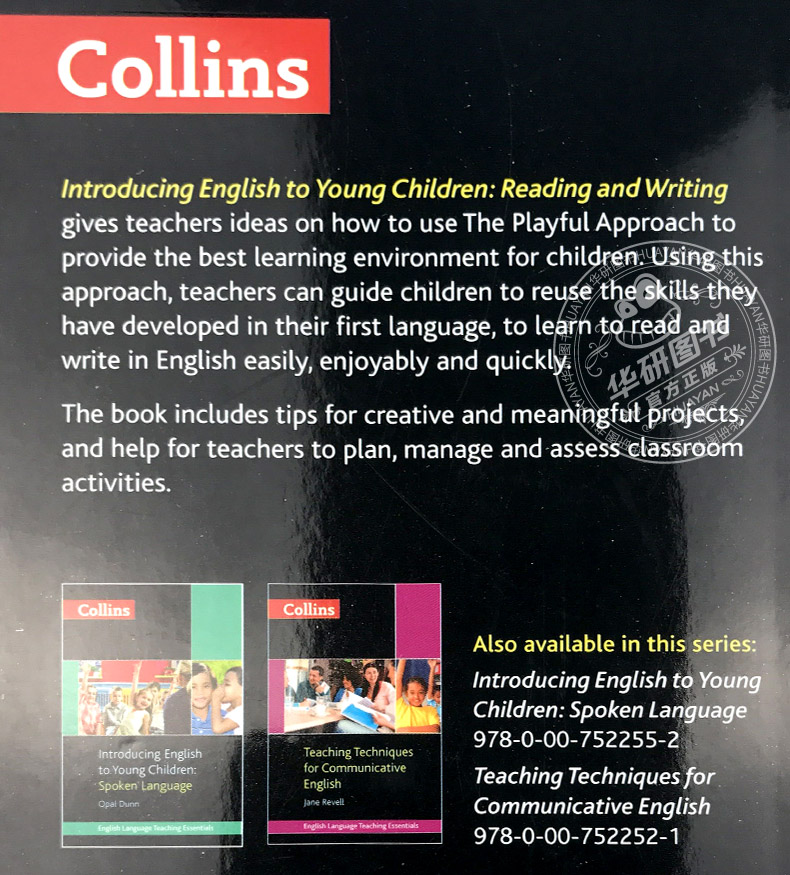


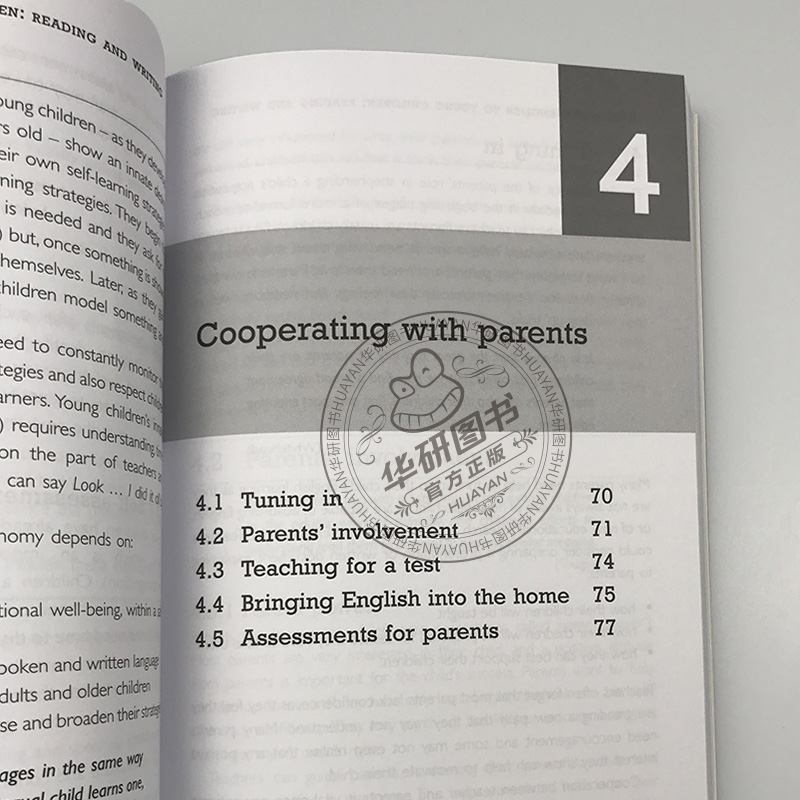
 书名:Introducing English to Young Children: Reading and Writing少儿英语阅读及写作教学指南
书名:Introducing English to Young Children: Reading and Writing少儿英语阅读及写作教学指南
作者:Opal Dunn
出版社名称:Collins
出版时间:2014
语种:英文
ISBN:9780007522545
商品尺寸:12.7 x 1.8 x 20.3 cm
包装:平装
页数:288 Introducing English to Young Children: Reading and Writing《少儿英语阅读及写作教学指南》是一本专为教师编写的实用教学指南,本书向老师们展示了在学龄前和小学低年级阶段的阅读和写作教学中,如何使用积极有趣的方式让孩子们更加高效、主动地学习。书中包含许多很有创意且有意义的课程方案和建议,可以为老师在设计、管理和评估课程时提供指导。
Introducing English to Young Children: Reading and Writing《少儿英语阅读及写作教学指南》是一本专为教师编写的实用教学指南,本书向老师们展示了在学龄前和小学低年级阶段的阅读和写作教学中,如何使用积极有趣的方式让孩子们更加高效、主动地学习。书中包含许多很有创意且有意义的课程方案和建议,可以为老师在设计、管理和评估课程时提供指导。
A practical teacher guide book for teaching young children to read and write in English. Introducing English to Young Children: Reading and Writing, is a practical guide book, showing teachers how to use the highly-motivating Playful Approach when starting to teach reading and writing to pre-school and lower primary-aged children. There are ideas for creative and meaningful projects and help for teachers to plan, manage and assess lessons. The book explores how children move towards becoming autonomous learners using strategies they have acquired in their first language.  Award-winning authorOpal Dunnhas many years of experience teaching children and has trained teachers all over the world. She has authored picture-books for nursery and young primary children and has written information books and articles for parents.
Award-winning authorOpal Dunnhas many years of experience teaching children and has trained teachers all over the world. She has authored picture-books for nursery and young primary children and has written information books and articles for parents.
 Young children, if circumstances are right for them, are innate, unconscious language learners. They are conscious of learning about the content of an activity but not the language (or languages) they are using. At 5 or 6 years old they may tell you how many languages they speak and give examples. But they are not conscious of actually learning them in the way an adult is.
Young children, if circumstances are right for them, are innate, unconscious language learners. They are conscious of learning about the content of an activity but not the language (or languages) they are using. At 5 or 6 years old they may tell you how many languages they speak and give examples. But they are not conscious of actually learning them in the way an adult is.
Children refine their language-learning strategies as they mature, depending on the type and quality of Language support within their experiences. They then have the ability to reuse their language-learning strategies unconsciously. If motivated to learn another Language - such as English. Most do this with confidence if they are shepherded adults to take part in enabling activities and are exposed to a similar quality of language support to that of their L I acquisition. By the age of 6, young children are familiar with most of the structures of their LI, although they are still absorbing new words and phrases. During pre-school children may have been introduced to different fames of spoken English or they may start an English program during the first years of lower primary school. In all cases they innately expect to reuse thaw language-learning strategies to absorb spoken English through listening to it, as they take part in meaningful, playful activities. To young children learning language is not a task — it is not instructed, even if it is adult led. Young children have not yet developed the cognitive maturity to understand and use English taught as an abstract, grammar-based subject. Most of them cannot yet recognize the difference between a verb and a noun in their LI! Teaching methods in the first years of compulsory school depend on local society and cultural expectations. Parents and extended families often have culturally influenced opinions about how and when children should learn another Language — in this case English. Transitions (by which we mean the changes incurred by meeting between schooling levels throughout compulsory education) alter the children status as a student Transition is based on the ch4cfs date of birth rather than his or her level of maturity and readiness for change in methodological approach. There are few examples of free-flow schooling, where status and individual development are coordinated, making transition smoother for the child. 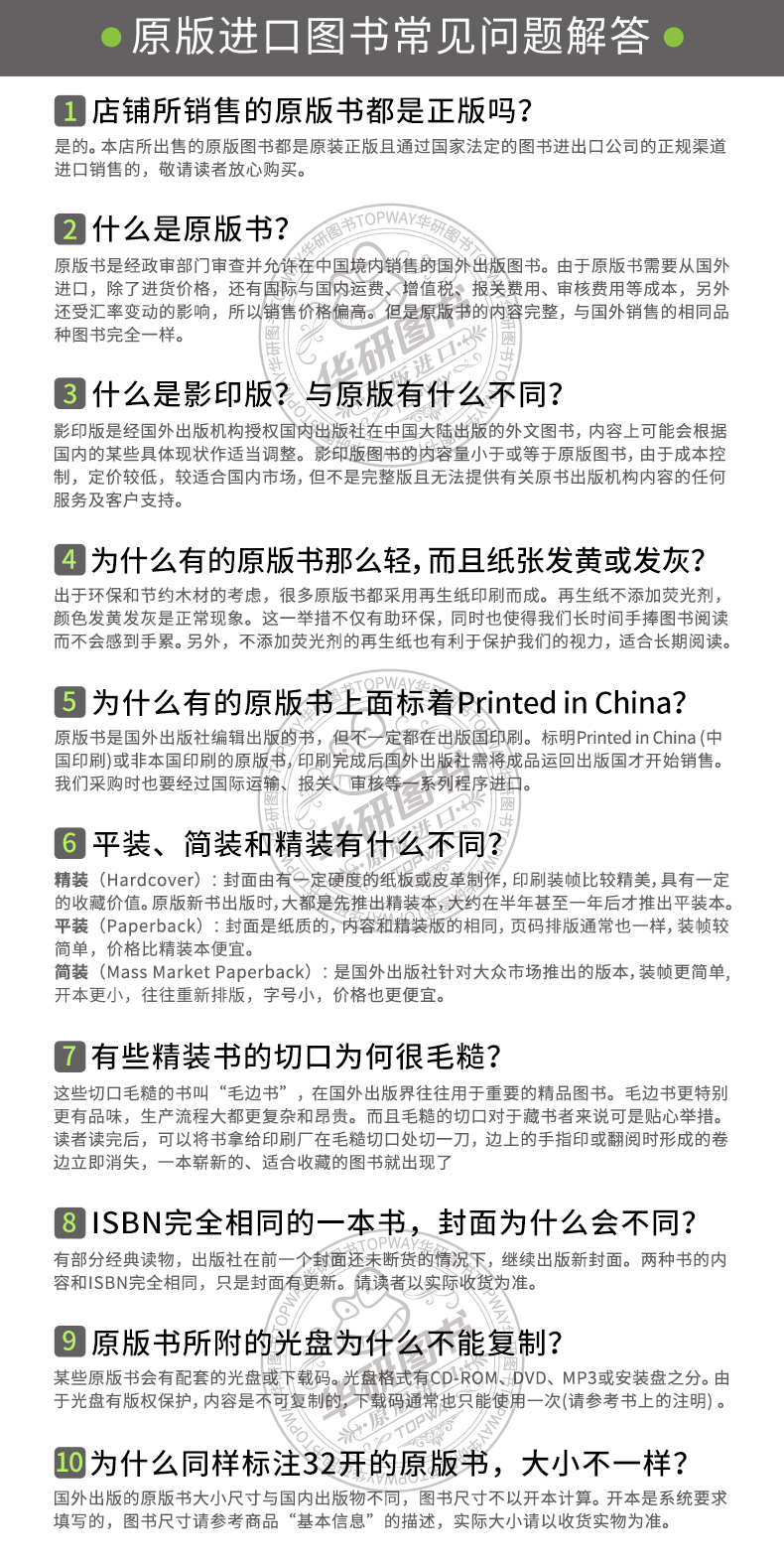
- 华研外语批发分销官方旗舰店 (微信公众号认证)
- 本店是“华研外语”品牌商自营店,全国所有“华研外语”、“华研教育”品牌图书都是我司出版发行的,本店为华研官方源头出货,所有图书均为正规正版,拥有实惠与正版的保障!!!
- 扫描二维码,访问我们的微信店铺
- 随时随地的购物、客服咨询、查询订单和物流...
